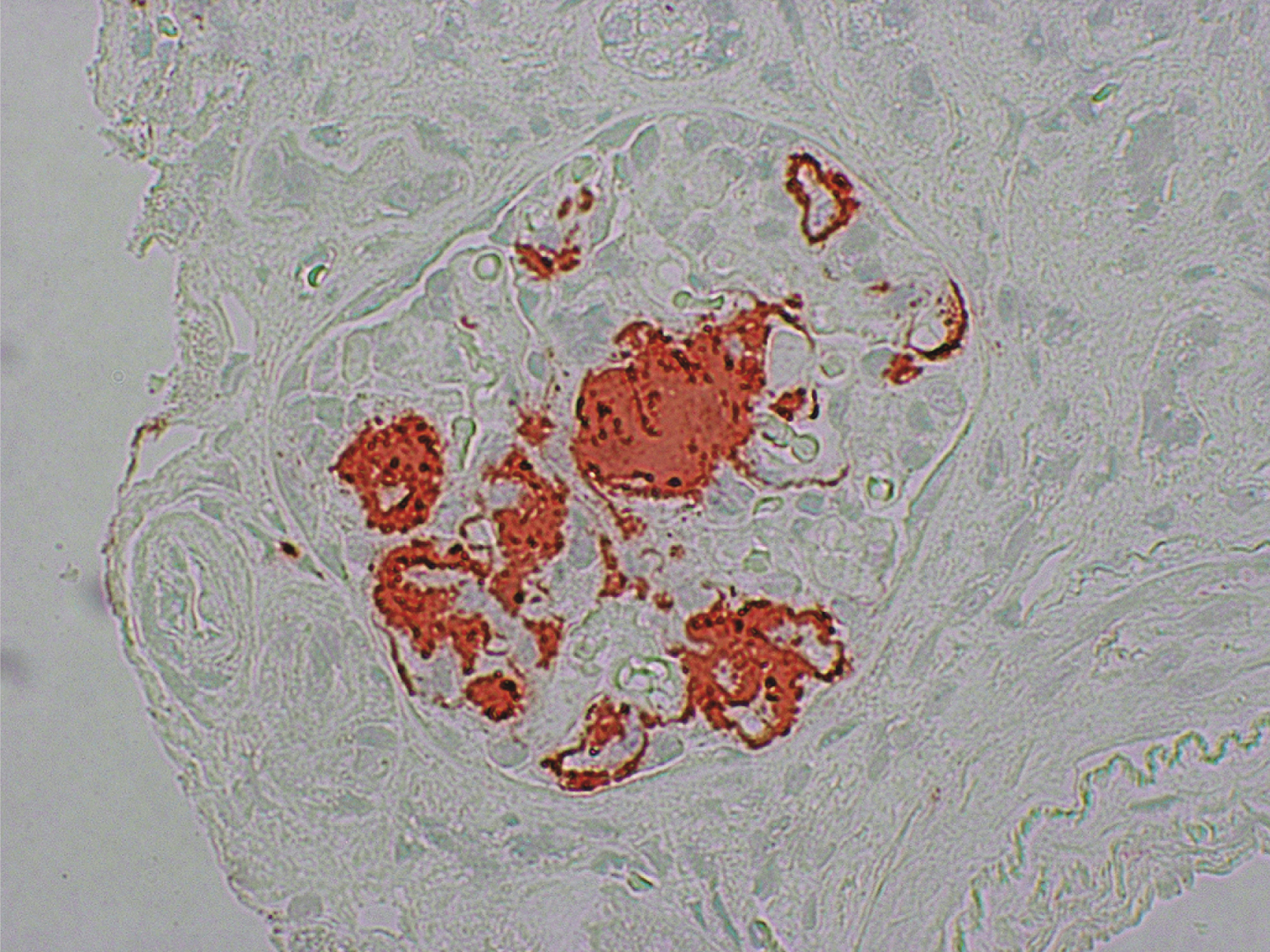amyloidosis /am′iloidō″sis/ [Gk, amylon + eidos, form, osis, condition] , a progressive, incurable metabolic disease in which a waxy, starchlike glycoprotein (amyloid) accumulates in tissues and organs, impairing their function. The condition may be hereditary or acquired and may be systemic or organ specific. There is no known cure for amyloidosis, and treatment in the secondary type is aimed at alleviating the underlying chronic disease. ▪ OBSERVATIONS: Primary amyloidosis refers to light chain amyloidosis seen in multiple myeloma. Patients with secondary amyloidosis usually suffer from another chronic infectious or inflammatory disease, such as tuberculosis, osteomyelitis, rheumatoid arthritis, or Crohn’s disease. Almost all organs can be affected, most often the heart, lungs, tongue, and intestines in primary amyloidosis, and the kidneys, liver, and spleen in the secondary type. Elderly patients tend to experience cardiac effects of the disease. Diagnosis is made through biopsy of the suspected organ or abdominal fat aspiration. ▪ INTERVENTIONS: There is no known cure for amyloidosis, and treatment in the secondary type is aimed at alleviating the underlying chronic disease. ▪ PATIENT CARE CONSIDERATIONS: Patients with renal amyloidosis are frequently candidates for kidney dialysis and transplantation.

